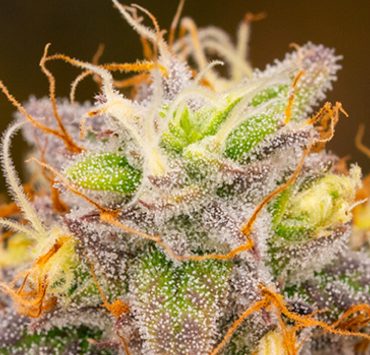Barsha Bhattacharya is a senior content writing executive. As a…
With the cannabis industry taking shape, the wide collection of businesses in the whole industry is currently under focus. While most people often believe that dispensaries are the golden ticket into the world of cannabis, they do not realize that there are so many more chances in this growing industry.
Stay tuned with us to learn about the different types of cannabis businesses out there and the business options to explore in the industry.
Carving Out Your Cannabis Niche:

Carving out a niche that will actually grow with the whole industry is influenced by the basic understanding of your target audience and brand persona. At the same time, it is also about what your brand is bringing to the table.
To find the answer, ask yourself a few questions,
- Where do you have unique experience and expertise?
- What are the different ways in which your expertise is movable into the industry?
- What are the resources that you have at your beck and call – equipment, capital, staff, and the like?
While thinking about the above questions, you might realize that you have the required tools for helping the whole industry in different ways that happen to be unique to your strengths areas. It is not a matter of whether you will be able to fit inside the industry, but rather, how you can fit into the industry.
It might feel strange, but always remember that at this particular moment, it is all of your game. Also, it is the beginning of this industry. The players who will be able to make a name for themselves at the moment will actually own the future.
There are many experts who have likened the growth of cannabis businesses to the timeline experienced by the whole alcohol industry after prohibition.
It took several decades for the entire alcohol industry to actually convert itself into what it has become today, including beer gardens, 6-packs at convenience stores, bars, lounges, breweries, distilleries, and more.
After several years of creative ideas, successful business models, and modern methods, the industry has evolved into what it has become today. As a potential owner of a cannabis business, the same power is right now in your hands!
The Main Types Of Cannabis Businesses: Business Opportunities In The Cannabis Industry!

There are basically two major distinctions between the types of cannabis businesses. The whole cannabis industry makes distinctions between two types of businesses. The businesses that touch the plant and the businesses that do not!
- Plant-touching businesses typically handle forms of weed like raw flowers and infused products directly. These brands need a license from the state to run.
- Non-plant-touching brands, also known as ancillary businesses, are the ones that provide services or products that support the whole industry but do not handle the products directly. Only certain businesses require legal licenses.
Plant-Touching Cannabis Businesses:

As we just mentioned, there are two types of cannabis brands – organizations that touch plants and the ones that don’t! So, without wasting time, let’s talk about the plant-touching brands first before moving on to non-plant-touching brands.
Plant-touching brands need licenses and are commonly controlled by the rules and laws of each state. Let’s look at the different aspects of the same.
Cultivation:
Cultivation companies are the ones that breed, grow, and, most notably, harvest cannabis. They usually supply raw flowers to cannabis dispensaries for consumption in plant form or sometimes to processors as well as manufacturers for getting hold of CBD/THC.
Laboratory Testing And Research:
Testing labs for cannabis usually determine the exact chemical makeup of different cannabis products, commonly talking about the CBD and THC potency, as well as quality testing products to make sure it is safe to actually sell the same to consumers.
Processing And Manufacturing:
Manufacturers actually extract CBD and/or THC from the raw flowers and then turn the same into a wider range of products for primary user consumption, like tinctures, topicals, vape cartridges, and more. They also supply their manufactured products to dispensaries.
Distribution:
Distributors basically transport cannabis flowers and other manufactured goods from one point to another in the whole supply chain. When growers begin growing the plant, the distributors simply transport the tested plant to the manufacturers, processors, and sometimes, even dispensaries.
Dispensaries And Delivery Services:
Delivery services and dispensaries are the only B2C license types since they sell products to end-users, either via delivery services or from retail locations. Dispensaries basically source inventory wholesales directly from the growers or from manufacturers and processors.
There are some states that are currently working on opening up new chances in the delivery sector, helping to create new business chances in the process within existing licensing measures.
Social Consumption:
These brands are companies where you can easily consume cannabis products on location, commonly in the kind of private venues or lounges. Only relatively few states have this type of license.
Bonus Tip: Make Sure You Understand Your Market
For entrepreneurs who are into building plant-touching brands, it is vital to understand how the market works. Every state has its own set of rules as well as regulations that govern different types of licenses and amounts.
Take Massachusetts and Oregon as cases in point. When the Oregon government-approved recreational cannabis, the state was alone awarded 2,100 grower licenses alone. The supply of weed has led to a major decline in rares, affecting the supply chain and revenue generation options.
The extra week was so huge that it would take nearly 6.5 years to sell without any extra growth. On the other hand, Massachusetts had a relatively more strict license rollout, with only about 787 licenses awarded across the entire supply chain.
Although that is fewer than half of the actual number of licenses in Massachusetts and Oregon, the sale of cannabis exceeded about 1 billion dollars in about two years. It took six years to cross the same threshold for Oregon.
Ancillary Cannabis Businesses:

By comparison, there are ancillary brands that do not touch the plant and, thereby, do not face any legal or license-related problems involved in plant-touching businesses. These are the types of cannabis businesses that offer different types of products as well as services that non-cannabis businesses and normal people can engage with on a regular basis.
Construction:
You will notice that there are several small and local construction businesses that have been working on residential and commercial developments in their own communities for multiple decades now.
Currently, there is a huge market for using old skills in a relatively new as well as booming industry.
Often, state laws are very strict about what features must actually be built into the licensed facilities. Controlled exit and entry, mantraps, locations of the products, and cash vaults are a few examples.
General contractors usually learn the cannabis-specific building regulations of their state. And then specialize in following these rules for the construction and development projects. The following of rules in this care are usually in very high demand, especially among dispensaries.
Packaging:
Packaging businesses provide wrappers, bottles, baggies, and containers for cannabis products. At a bare minimum, the packaging must be compliant, accompanied by child-proof protection and labeling that is known for making appropriate disclosures.
Sourcing packaging that is cheap is a huge challenge for the whole industry. And with time, we are seeing a rising demand for creative alternatives that are sustainably sourced, eco-friendly, and aesthetic.
Professional Services:
Specialized professional services are very important throughout every other part of the marijuana supply chain.
This is inclusive of accountants and lawyers who use their basic understanding of marijuana laws. And that’s not all. These experts also use their knowledge of tax strategies such that you structure your whole business for sustainable success.
You should do this while working on minimizing your tax expenditures. Professional services also include marketing experts who can easily help you develop a distinctive brand in an industry that is rapidly commoditizing.
Technology Products:
Technology products allow cannabis operators to efficiently run their businesses.
For instance, the seed-to-sale software enables cannabis businesses to track inventory at every stage in the whole supply chain. This is done from when it was cultivated to the selling point and then to the consumers. And then report about the same to the regulators.
Some technology entrepreneurs use coding to manage everything. From the different point-of-sales as well as employee training modules to product delivery and customer relationship management, all of which require specialized solutions, considering the unique characteristics of this industry.
Accessories:
Whether you are a cannabis connoisseur or new to cannabis consumption, every consumer requires some kind of accessory to complement their entire smoking experience. There is a big market for paraphernalia. It ranges from artisan goods like stash boxes and ashtrays to glassware like bongs and pipes.
Growth Potential For Cannabis Businesses:

Cannabis businesses face multiple challenges beyond the standard challenges faced by new companies in different industries.
Navigating these challenges at the beginning of your business and then building a foundation that enables you to grow as well as adapt as the rules change inevitably will become vital to your success in the cannabis industry.
Here are some of the most common challenges that growing cannabis businesses usually face and some of the tips for dealing with them.
1. Developing The Right Partnerships:
It is difficult but not impossible to do anything alone in the cannabis market space. The relationships you develop here in the early stages can legally make or even break your fledging cannabis business.
The best way to start a business is by hiring a consultant who can actually develop your plans efficiently.
You will have to network, develop partnerships, and build relationships across the state to give your brand a competitive advantage in terms of the right security plan, standard operating procedures, and processes. Just get hold of the right attorney and the local CPA with major experience in cannabis.
2. Changing Regulations:
It is likely that the regulation that applies to your business is subject to change since the industry is comparatively very new. Plus, it happens to be an evolving space with public officials regularly working on revamping as well as revising rules and regulations.
Cannabis entrepreneurs must think about interacting with an experienced lawyer about the legal intricacies involved in different types of cannabis businesses.
Cannabis regulations frequently experience fluctuations across the state. The best way for people to stay updated on what exactly their state requires is to basically have an attorney. The attorney can interpret the regulations as well as the statutes.
The cannabis industry is constantly transforming – so as entrepreneurs, you need to be ready at a moment’s notice.
3. Advertising And Marketing Restrictions:
Private company policies and state regulations limit how most cannabis businesses can actually advertise themselves. Advertising cannabis brands on billboards, television, and radio is often banned.
Then, local marketing channels, including Facebook, make things difficult. These can prohibit the purchase of any sponsored content for cannabis businesses.
These restrictions indicate how multiple cannabis businesses must depend on a combination of age-old content marketing and organic social media branding, email marketing campaigns, and even in-person marketing opportunities at industry events and trade shows.
Networking, as well as word-of-mouth referrals, are vital tools in the marketing toolbox of cannabis businesses.
And It’s A Wrap!
Launching a new brand in the cannabis market is not really for everyone. It takes a whole lot of patience, money, and time. It could also take a significant investment on your part to obtain a business license.
But the industry has so much more support than ever, with nearly 90% of Americans being in favor of legal cannabis.
To make sure that your crop is producing the maximum yield, growing weed needs an expert team of botanists and real estate to grow weed when it comes to the products.
Then you need to find all the right partners and definitely keep up with the constantly changing regulations. And all that is before you even reach the storefront.
However, it is possible to stay ahead of any issues in the future. With the right partnerships in place, you will have a team to actually support your dream.
With some cool business money planning, you will be ready to bear all potential startup costs. Once your operation is set up and gets running, you will be at the front of a new business model.
Additional Reading:
Barsha Bhattacharya is a senior content writing executive. As a marketing enthusiast and professional for the past 4 years, writing is new to Barsha. And she is loving every bit of it. Her niches are marketing, lifestyle, wellness, travel and entertainment. Apart from writing, Barsha loves to travel, binge-watch, research conspiracy theories, Instagram and overthink.









